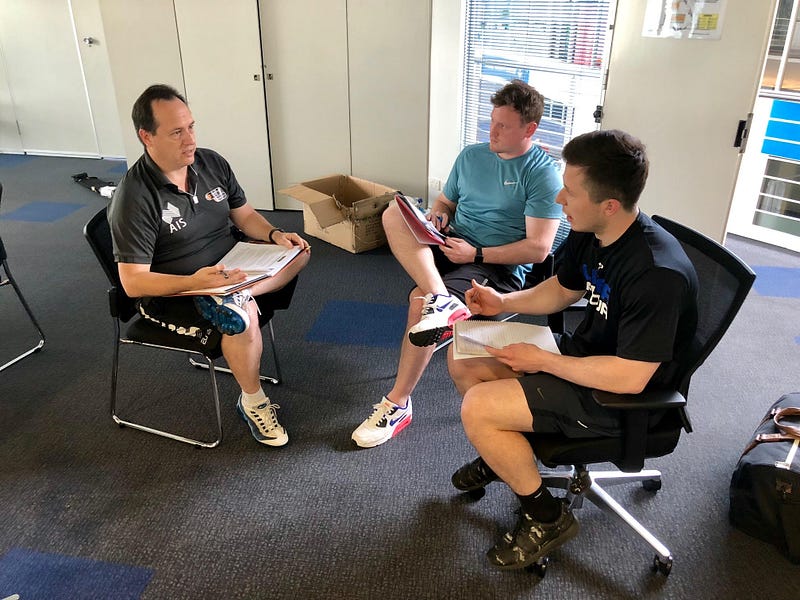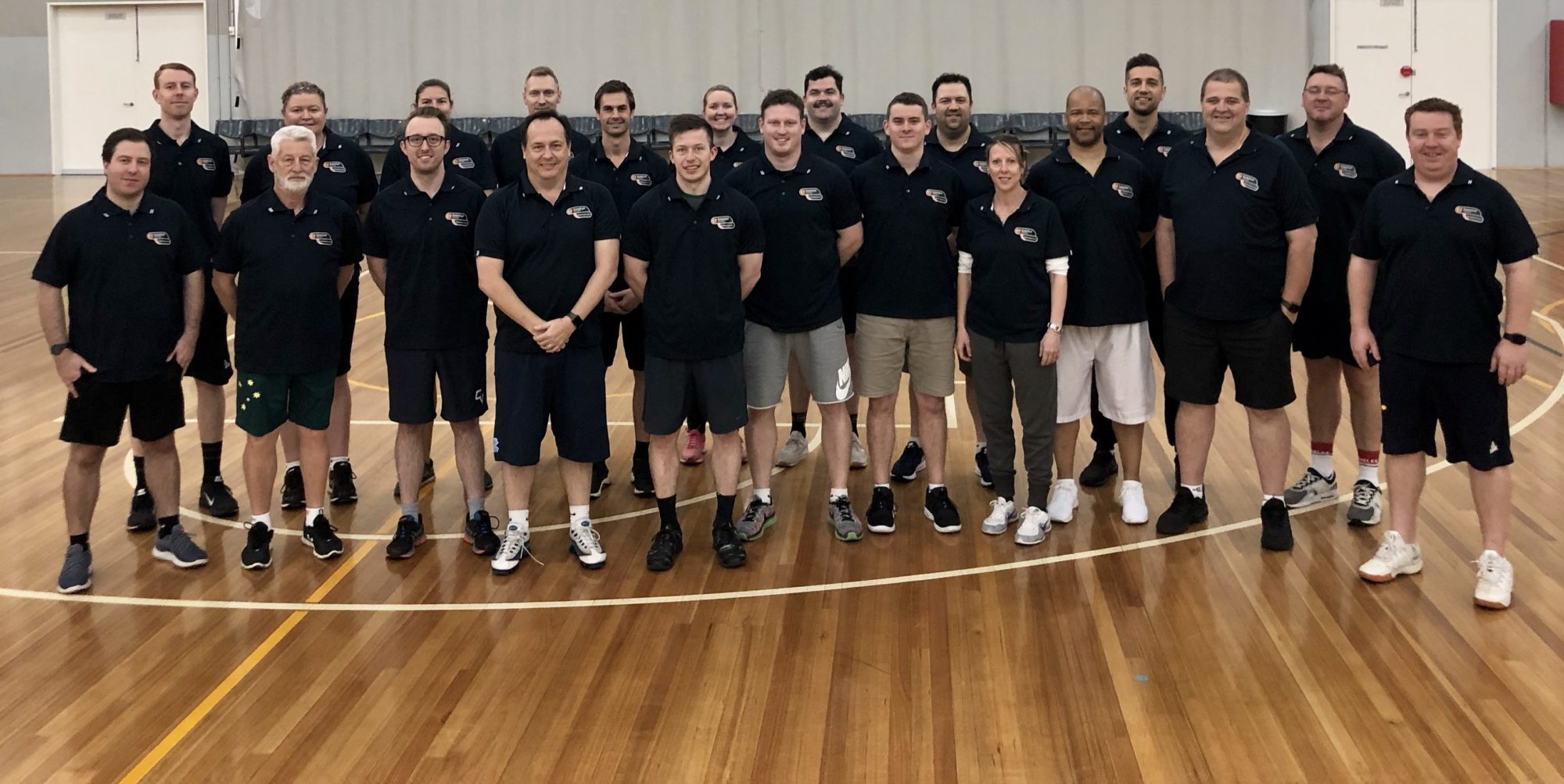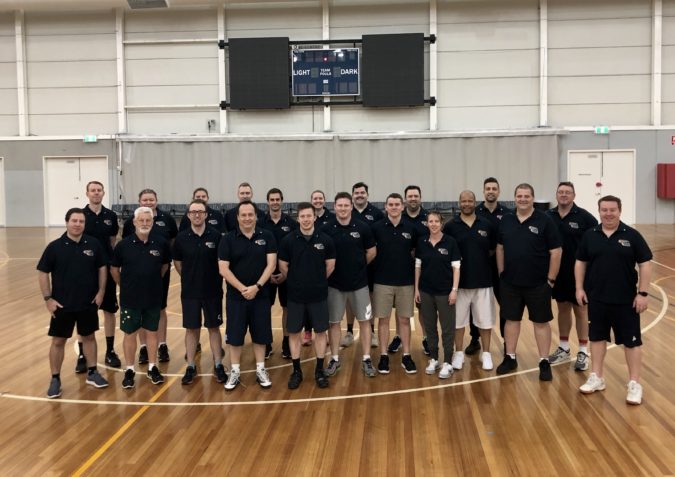Jack Fleming is a coach from the Diamond Valley Basketball Association and is active across all levels of player development in Melbourne. He recently completed the pilot course of Basketball Australia’s new Performance Coach accreditation and penned this blog as part of his reflections from the course.
Welcome to my report on the recent Basketball Australia Performance Coaches Course held in Melbourne, Australia. It was a 3-day event totalling over 23 hours of action packed lectures, group discussions and presentations and on court activity.
Presenters included:
- Peter Lonergan — Head of High Performance Coach Development for Basketball Australia
- Mike McHugh — ex-Head Coach of the New Zealand Tall Ferns & former National Manager of Player and Coach Development with Basketball Australia
- Mick Downer — assistant coach of the Brisbane Bullets and Head Coach of the Canterbury Rams.
- Dave Biwer – Head Coach, Nunawading Spectres & BA National 3×3 Pathways Manager
- Reuben Koorey — Hudl Education and Elite Support
“Engage, Think, Re-assess.” — Peter Lonergan
So grateful to be surrounded and pushed by those who are ‘playing up a level’ in their coaching this weekend. #BACoaches pic.twitter.com/AYD1dDUebX
— Jack Fleming (@Jack_Fleming1) November 4, 2018
Talent Identification — Mike McHugh
- You only get it right 20–30% of the time, you can’t predict anything for sure. Talent prediction vs team selection is very different.
- There are 3 things I look for: (a) Basketball Skills (b) Athletic Skills (c) ‘Fire in the belly’. They must have 2/3 traits, and one of them must be the last one.
- Are you seeing what’s in front of you, or are you looking down the road in four years time?
Leadership — David Biwer
- Know your audience, the way they want to be heard not how you want to speak.
- Know your leaders, have a meeting before the meeting. Understand the voices in your locker room, have a meeting after the meeting.
- Never feel bad about giving feedback. If it’s for the better of the team, have the had conversation. What’s the worst thing that could happen?
Advanced Offensive Concepts — Mike McHugh & Peter Lonergan
- The skill details are the things that count, players score not offence.
- The hardest thing in defence is the long closeout, created by the low tag on a pick and roll or dribble penetration. Put the defence in those situations as many times as possible.
- Golden State Warriors: averaged 2.1 seconds per touch of the basketball. Regardless it is about who thinks the game?
Advanced Defensive Concepts — Mick Downer
- Defensively: have a clear picture as to how you think the game should be played. Must be a reflection of your personality.
- Offence has a rhythm and flow, how does your system disrupt that rhythm?
- Scouting: make sure your players understand what you’re willing to get beat with. Keep the main thing the main thing.
Offensive basketball is like good music, got to have rhythm and flow. We want to disrupt that flow, take a good song and make it really bad.” — Frank Martin
SportsCode & Hudl — Reuben Koorey
- The art of when and how you’re using information is what counts.
- Film can help solidify learning and save you time you don’t often have on the court.
- Never see the highest level as a restriction to your access, find a way and be resourceful.
Peter Lonergan — The Art of Coaching
- “Argue, Agree, Align” — Sam Presti
- Basketball = athlete centred, coach driven and administrator supported.
- Empathy — ego = coaching excellence.
- There’s a responsibility to pass on knowledge. “Learn it one day, teach it the next.”
- “Imitation is a short runway, eventually you have to go wheels up.” — Sam Presti

Reflection
The greatest value that was taken from the course was not the information, but the opportunity to discuss and be challenged by other coaches about parts of the game. Hours of exchange of ideas about X’s & O’s, leadership, scouting, relationships puts into perspective how much knowledge you can gain just from talking to others. I have written about this previously in the The Power of Conversations. I feel very fortunate to have been granted this opportunity, however it doesn’t take a course to get a bunch of coaches together and have a discussion. To learn and be uncomfortably wrong so many times was exponential for my growth as a coach. The relationships started, strengthened and consolidated are what makes basketball such a great game. I only feel further obligated to share and host these discussions in the future, and if you would like to be involved please message me on Twitter.





Leave a Reply